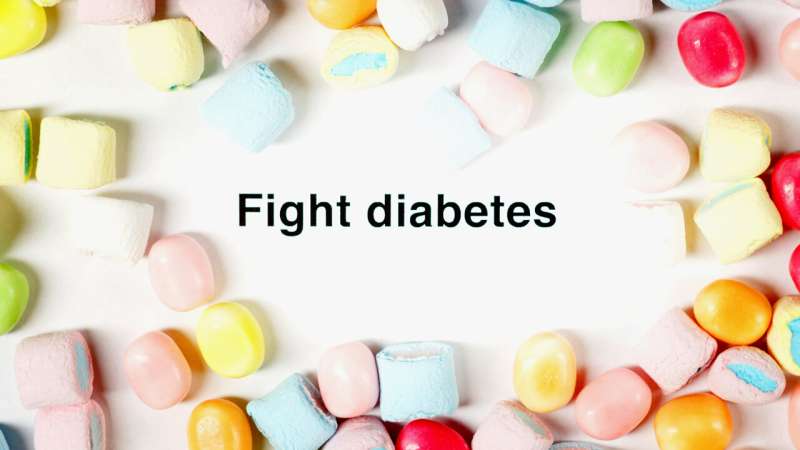Melanoma's sugar addiction offers hope for new treatment

Melanoma cells are dependent on glucose to grow and spread, Melbourne researchers have found, paving the way for therapies that can halt cancer growth by blocking its fuel source.
Melanoma is the most deadly cancer in Australia, claiming 1,500 lives each year. Without treatment the life expectancy is around eight months from diagnosis.
Around 40% of melanomas are driven by mutations in the BRAF gene and rely on glucose to drive their aggressive growth.
The study – led by PhD candidate Tiffany Parmenter and co-authored by professors Rod Hicks and Grant McAurthur at the Peter Peter McCallum Cancer Centre – was published today in the journal Cancer Discovery.
The researchers saw a number of patterns in clinical practice and set out to understand the scientific mechanisms that underpinned these changes in patients.
They noticed that tumours driven by BRAF genes had particularly high use of glucose, which was turned off very rapidly after drug therapy – this indicated the medication was working.
"While we know these drugs are incredibly effective in patients who have this particular mutation, it will only stop them growing for a period of time – sometimes years, but unfortunately sometimes it only keeps it under control for weeks," said co-author Professor Rodney Hicks.
The researchers also noticed that before the tumours started to grow again, the melanoma's glucose supply was turned back on and became resistant to the effects of the drug.
The team used a series of different experiments over three years – including genetic analysis, cell culture analysis and tests incubating cells with drugs – to piece together what was occurring.
"We found that the cells were 'addicted' to glucose in their need to grow," Prof Hicks said. Some were so addicted, they would kill themselves as soon as the supply was threatened, while others were able to survive, he said.
The next step is to develop therapies that kill the remaining cancer cells by "cutting off the fuel supply" or blocking the raft of genes that regulate the uptake and use of glucose.
But unfortunately, blocking the the melanoma's glucose supply was not as simple as eating less sugar, Prof Hicks said.
"Your brain and heart and all your other tissues need sugar so that's not a viable proposition. What we want to do is target a very specific use of glucose in cancer cells."
Professor Rodney Sinclair, Head of the Epworth Dermatology Research Centre, said these cancers were notoriously difficult to treat.
"Melanoma has a tendency to drop seeds into the blood stream and lymphatics that can lay dormant for years before reactivating," he said.
"The seeds are hard to detect and hard to eradicate. Once reactivated they are adaptable and resist chemotherapy that is effective for other types of cancer."
Although modern drugs were able to shrink tumours, he said, they usually did not disappear completely.
"The remaining residual tumour over time finds a way to resist the chemotherapy and then rebounds back. So, rather than a cure, these treatments prolong life by anywhere up to a year or two and then the patient ultimately succumbs to the melanoma."
Cancer biologist Darren Saunders, laboratory head at the Garvan Institute, said the study was important step forward in the development of new combination therapies.
"This study has identified a potential new avenue, and proof of concept, for using BRAF inhibitors in combination with drugs targeting glycolysis," he said.
"Glycolysis is a particular arm of cellular metabolism that converts sugar (glucose) into energy and building blocks for new cells.
"There is a rapidly emerging understanding of how cancer cells reprogram their metabolism to use fuels like sugar, fats and amino acids differently to normal cells.
"This reprogramming is a highly attractive target for new therapies and the subject of intense research interest."
This story is published courtesy of The Conversation (under Creative Commons-Attribution/No derivatives).
![]()















